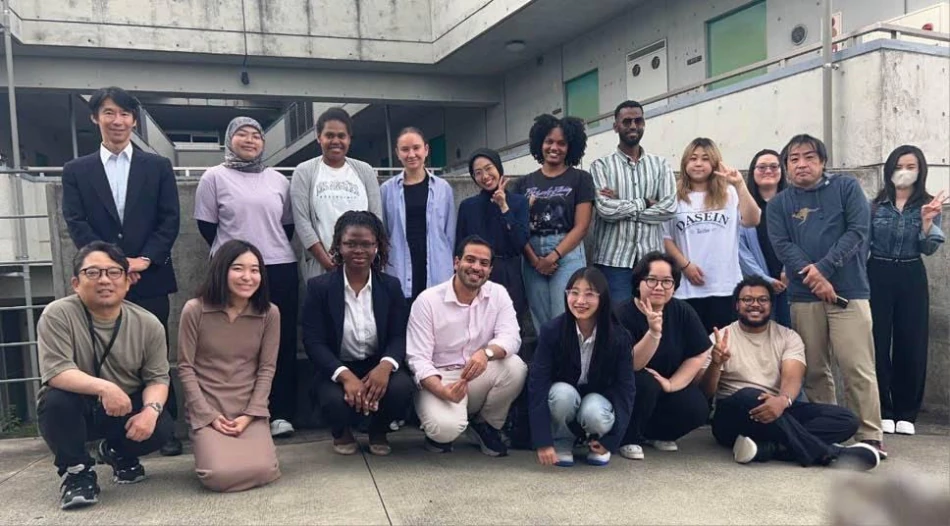
Emirati Student Weaves Political Tapestry with Anthropology and Japanese Culture
Emirati student Taen Al Daboos is pursuing his master's degree in comparative politics and administration at Kyushu University in Japan, representing a growing wave of UAE nationals studying abroad who serve as cultural ambassadors while gaining expertise in specialized fields. His research focuses on nuclear discourse analysis using declassified documents, comparing Japanese and Western narratives.
Al Daboos chose Japan specifically to experience an academic environment different from typical Western systems. He wanted to broaden his perspectives through a unique cultural and educational experience that would set his studies apart from conventional programs.
His interest in politics started early through books, films, and video games where he became fascinated with understanding political factions and movements in fictional worlds. This childhood curiosity evolved into serious academic study after being influenced by philosophers like Plato and Ibn Khaldun, particularly their work on civil movements and political thought.
**Academic Journey and Challenges**
During his undergraduate studies in international relations at Zayed University, Al Daboos developed a deeper academic interest in politics, especially political anthropology and social movements. This foundation led him to pursue graduate studies in Japan's unique academic setting.
Living in Japan presented practical challenges he hadn't anticipated. The society relies heavily on paper-based procedures and face-to-face meetings, requiring extra effort for university admissions and official transactions. Language barriers and the reserved nature of Japanese society made forming friendships difficult initially, though he eventually adapted to the cultural differences.
**Cultural Exchange and Research**
Al Daboos participated in the Youth Ambassadors program under the Crown Prince's Court, which gave him direct exposure to Japanese culture. He learned sushi preparation and visited traditional workshops where craftsmen make katana swords. These experiences became essential to understanding Japanese society and its values beyond academic study.
His current research examines the history of nuclear discourse using recently declassified documents, comparing how Japanese and Western sources present different narratives about the same events. He presented portions of his research at Seoul National University during an international conference that brought together students and researchers from multiple countries.
**Broader Significance**
According to Al Daboos, studying political science and international relations has become more important as global interconnectedness increases. Challenges like pandemics, climate change, and economic crises require deeper understanding of how nations interact and respond to shared problems.
The UAE serves as a notable example through its hosting of major international events and initiatives in energy, communications, and humanitarian work. Students like Al Daboos return home with expertise that strengthens the country's capacity to engage with these global challenges while maintaining its cultural identity on the international stage.
Most Viewed News

 Omar Rahman
Omar Rahman






